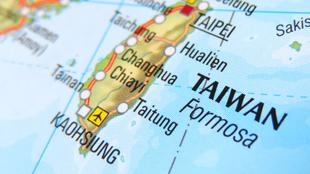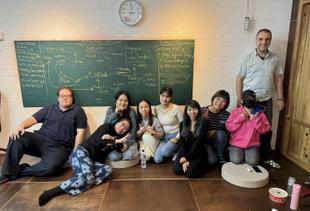Freedom of association, recruitment fees and migrant workers: snapshot of Taiwan
In November 2023, a delegation from Electronics Watch travelled to Taiwan to provide training for local monitoring partners Serve the People Association (SPA) and to learn more about the issues facing electronics workers there. These include discrimination against union members, difficulties faced by migrant workers in securing repayment of recruitment fees, poor living conditions and unfair wage deductions.
Electronics industries have been the driving force behind Taiwan's economic growth since the 1970s, and they employ a huge workforce that includes around 700,000 migrant workers. The country produces up to 90% of the world's most advanced microchips – a sector which accounts for 15% of its GDP. Its semiconductor industry is so crucial for global electronics hardware that it is considered a strategic player in questions of national security and trade.
Meanwhile, electronics workers in Taiwan still face systemic rights violations. The right to strike remains highly restricted, with workers allowed to strike only in "adjustment" disputes which include issues such as compensation and working schedules. Large companies frequently make it difficult for employees to organise a union through methods such as blacklisting union organisers from promotion or relocating them to other work divisions.
Our monitoring partner SPA has operated in Taiwan since 2014, supporting over 1600 migrant workers and operating three shelters for migrants where it helps them to organise and unionise. Capacity-building for the SPA team was the focus of the Electronics Watch visit: Aykut Kazanci, Manager of Monitoring Capacity, delivered training which covered conducting interviews with workers, evidence, grievances and reporting, as well as global trends in the electronics industry. Held at a SPA shelter where children of migrant workers come to be tutored, participants in the training included the SPA leadership as well as shelter staff from the Philippines, Vietnam and Indonesia who carry out monitoring and grievance handling. A Filipino worker also joined the brainstorming workshop, answering questions about her experiences and sharing her perspective.
During Aykut's visit, SPA also organized a broader meeting with several existing local trade unions (left). They discussed options to collaborate on joint projects to raise awareness among SMEs in the electronics industry, including on migrant worker issues. Leaders of one of the well-established electronics sector unions are mobilising their members to organise factory-level unions, while also encouraging them to participate in joint worker-management committees.
Aykut also had the opportunity to meet with two newly established unions, formed by migrant workers at the factory level. SPA is guiding them on how to keep the unions active while they negotiate an agreement with employers, made more urgent by company plans to relocate a specific plant overseas, which would leave workers without jobs. This agreement will also cover key issues such as repayment to migrant workers of recruitment fees and related costs, and avoiding discrimination due to union membership. But while the agreement is being negotiated, workers fear that they will be blacklisted by recruitment agents for their union membership, meaning they won't be able to find jobs later.
Recruitment fees among major manufacturers in Taiwan were phased out a few years ago thanks to strict requirements from buyers, but many workers are still waiting to be repaid from previous employment. And while some companies have committed to repaying local service fees of about 2,000 USD collected by recruitment agents in Taiwan, they are reluctant to offer repayment of fees paid by workers in their countries of origin, which remain common. These amount to as much as 1,500 USD each, plus about 50% interest on loans, and it is difficult for workers to provide hard evidence to prove how much they paid.
It is legal in Taiwan to deduct dormitory and electricity fees from wages, but workers complained about poor living conditions and questioned why the electricity deduction for air conditioning was sometimes raised tenfold, for example when dormitory subcontractors are changed. To put this in perspective, monthly wages are about 700 USD, of which approximately one third goes to agency fees, accommodation, and electricity.
Electronics Watch will continue to work with local monitoring partners and workers to drive change, helping workers to voice complaints and secure remedy wherever breaches of labour rights occur.




